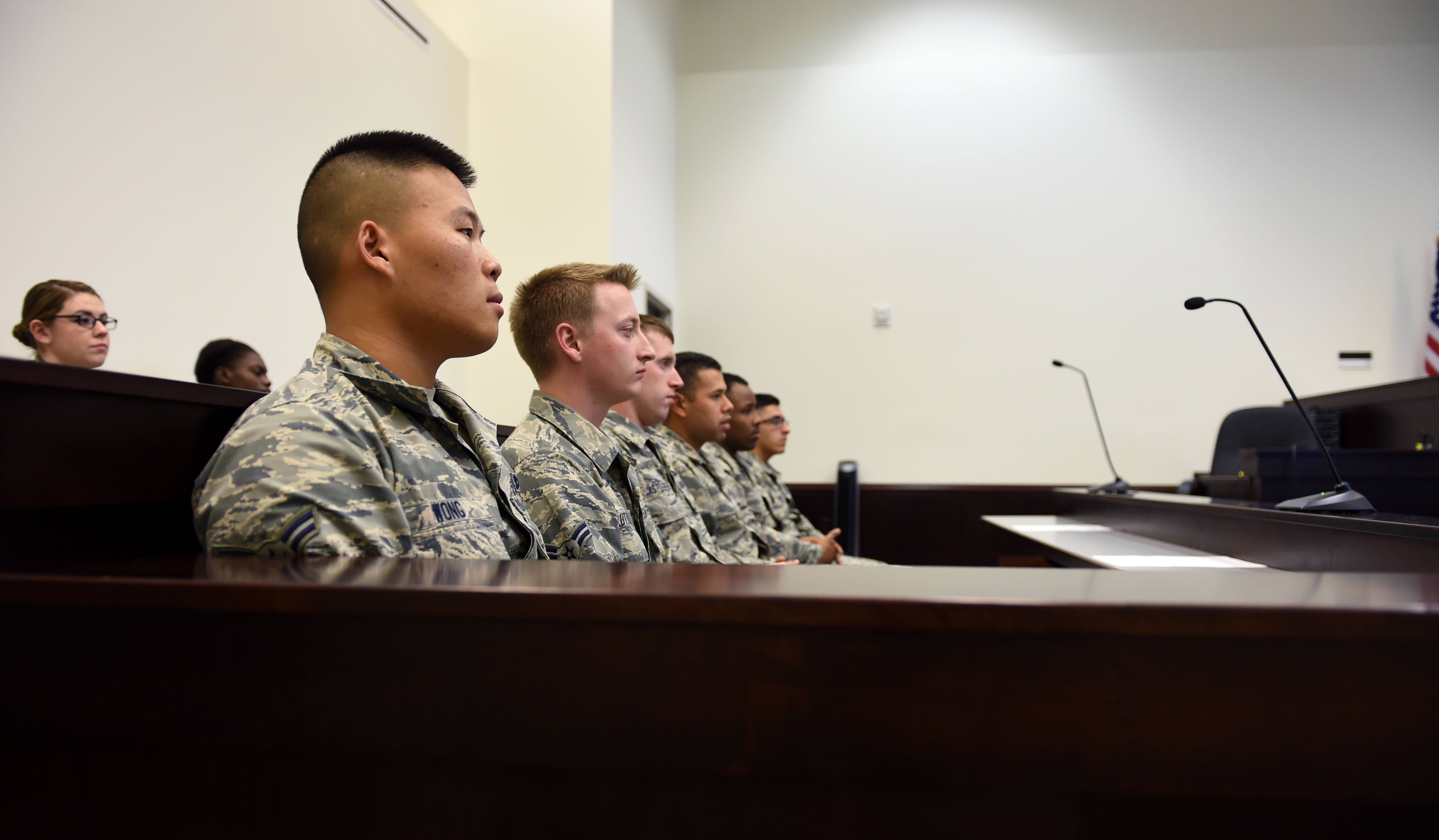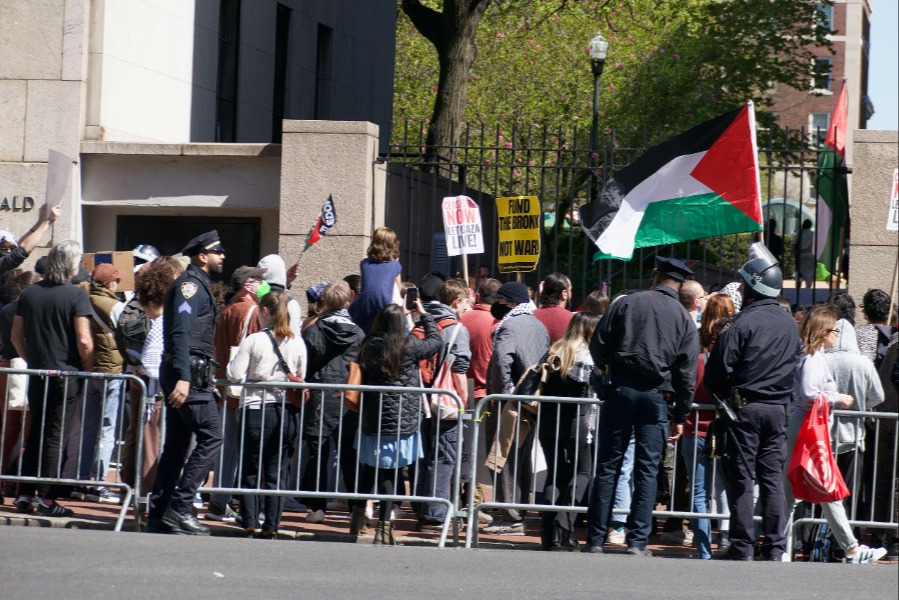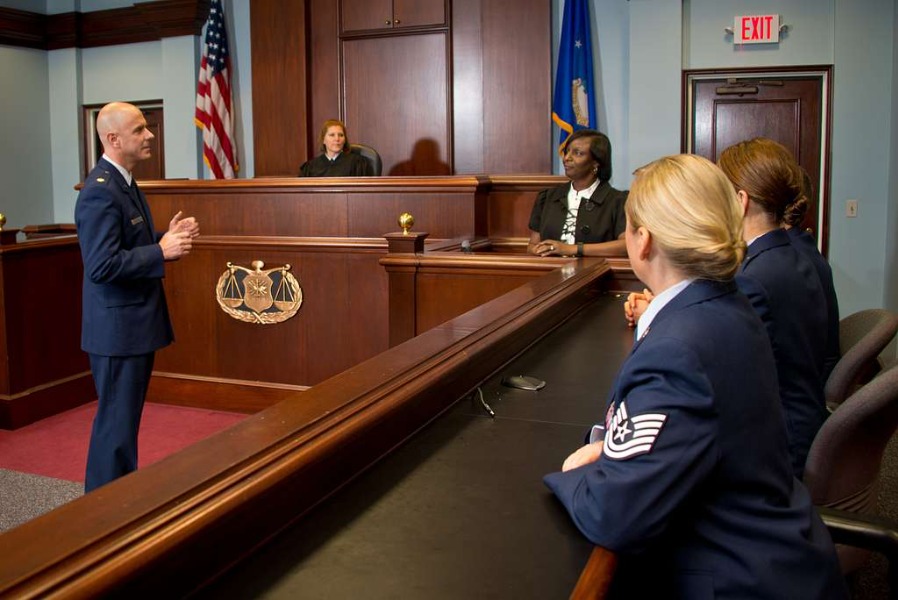The Supreme Court and Military Jurisdiction Over Retired Servicemembers

Published by The Lawfare Institute
in Cooperation With

From Admiral Bill McRaven to General Michael Hayden and General Martin Dempsey, some of President Donald Trump’s more visible critics of late have been retired military officers. And a provision of federal law little known outside the military makes it a crime, triable by court-martial, for those individuals (and any other commissioned military officer) to use “contemptuous words against the President, the Vice President, Congress, the Secretary of Defense, the Secretary of a military department, [or] the Secretary of Homeland Security.” But does the Constitution really allow the government to subject to military trial those who have retired from active duty—in some cases, long ago—even for offenses committed while they are retired?
At its conference on Feb. 15, the Supreme Court is set to decide whether to hear a case raising this exact question (full disclosure: I’m co-counsel to the petitioner in Larrabee v. United States). The justices should take the case. And they should hold that retired service members are no longer part of the “land and naval forces” for purposes of the Constitution—and thus can be tried only by civilian, rather than military, courts for offenses committed after leaving active duty.
The Supreme Court has never ruled directly on the matter. But until recently, lower courts had routinely upheld the military’s power to try those retired service members who continue to receive pay from the government, reasoning that such a salary renders the retiree a continuing member of the “land and naval forces” for purposes of Congress’s constitutional authority. But the Supreme Court vitiated that reasoning in 1992, clarifying (in a case about federal tax law) that retired pay for former service members constitutes deferred compensation—tantamount to a pension—rather than a reduced salary designed to help ensure retirees’ future readiness. Despite widespread agreement that, in the process, the Supreme Court wiped out the justification for trying retired service members by court-martial, the justices have not yet had a chance to consider that issue—or whether other arguments in favor of military jurisdiction might remain.
That opportunity has now arisen, however, in a case that stands out only for its un-exceptionalism. Steven Larrabee was convicted by court-martial of two offenses arising out of a drunken incident at a privately owned bar in Japan, during which he sexually assaulted a fellow bartender. Although Larrabee challenged whether, as a retired service member, he could be tried by the military for offenses committed after leaving active duty, the military courts rejected his claim. Acknowledging that the previous rationale for trying retired service members by court-martial was no longer viable, the lower courts in Larrabee’s case nevertheless upheld the military’s authority to prosecute him. In particular, the courts held that retired service members are still part of the “land and naval forces” and, as such, are subject to court-martial for any offense committed at any point in their retirement, solely because they remain subject to being recalled to active duty.
This logic is stunning in its breadth. Not only would it allow for the court-martial of any of the 2 million currently retired service members for any crime committed at any point between retirement and death, but it would also allow Congress to subject to military jurisdiction any offense committed by the 17 million men currently registered for the Selective Service, who are subject to involuntary induction and activation by the president for training and service at any time, “whether or not a state of war exists.” If the lower courts are correct, the military could not only prosecute Admiral McRaven for contemptuous speech toward the president; it could also prosecute an octogenarian Vietnam veteran for Medicare fraud, or an 18-year-old Selective Service registrant for speeding in a national park. Indeed, in its brief opposing certiorari, the solicitor general largely disavowed this reasoning, conceding that “[t]he mere possibility that an individual might in the future become a member of the Armed Forces is insufficient,” standing alone, to conclude that he or she is part of the “land and naval forces”—and properly subject to military jurisdiction.
This reasoning is also deeply anachronistic. Even in a national emergency, a tiny percentage of retired service members would be realistically subject to involuntary recall. Instead, since Vietnam, a robust reserve component—rather than the retired list—has become the military’s preferred means for augmenting active-duty troops. And with respect to reservists, unlike retired service members, Congress has authorized military trials only for offenses committed while on active duty or inactive-duty training—as the Court of Appeals for the Armed Forces just reaffirmed last week. Neither the lower courts, nor the solicitor general in his brief in opposition, have offered any rationale for why retirees should be subject to court-martial for nonmilitary offenses in their civilian lives when reservists are not. Nor is there any reason to believe that the Larrabee case is an outlier. The Department of the Navy alone has court-martialed eight retirees in the past five years, and there have been high-profile examples of comparable claims in the other branches, as well.
In a series of decisions shortly after World War II, the Supreme Court repeatedly placed limits on the military’s constitutional authority to try anyone other than active-duty service members. In a 1955 case in which the court held that former service members who had fully separated from the military could not be tried even for crimes committed while on active duty, it explained that “[d]etermining the scope of the constitutional power of Congress to authorize trial by court-martial presents another instance calling for limitation to ‘the least possible power adequate to the end proposed.’” Two years later, Justice Hugo Black went further, writing in a case that rejected the military’s power to try a service member’s spouse for her husband’s murder that “[e]very extension of military jurisdiction is an encroachment on the jurisdiction of the civil courts, and, more important, acts as a deprivation of the right to jury trial and of other treasured constitutional protections.”
To nevertheless allow for the court-martial of retired service members today, especially for nonmilitary offenses committed after leaving active duty, is to turn these rulings, and the deeper principles they reflect, on their head. The Constitution shouldn’t abide such a remarkably expansive understanding of military jurisdiction—and the justices should grant certiorari in Larrabee, and say so.





